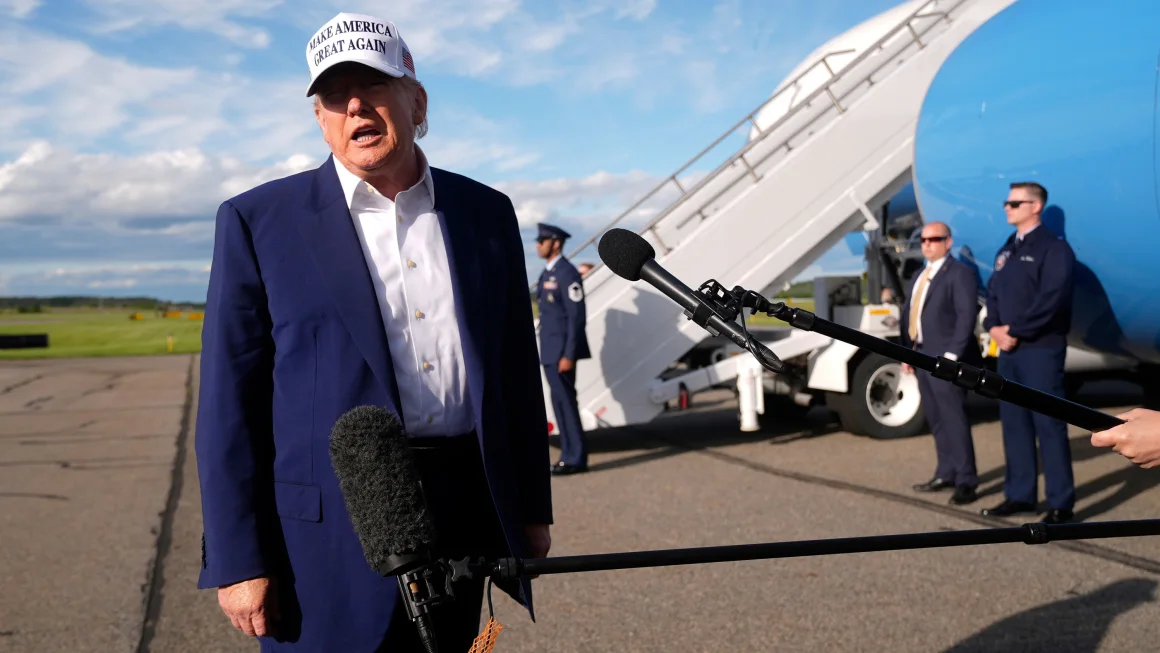In a rare and strong public rebuke, former President Donald Trump openly condemned Russian President Vladimir Putin following Russia’s recent massive missile and drone strike across Ukraine. The assault, which took place just days ago, has been described as one of the deadliest and most extensive since Russia’s invasion began, leaving cities battered and civilians in distress.
The Deadly Strike That Sparked International Outrage
The recent attack targeted multiple cities in Ukraine, including the capital Kyiv, with hundreds of missiles and drones raining down. Ukrainian officials reported at least 12 people killed, with many more injured. Critical infrastructure such as power plants and residential neighborhoods were severely damaged, plunging parts of the country into darkness and chaos.
As emergency services scrambled to respond, global attention turned to the escalating violence and the potential for further devastation.
Trump’s Candid Response: A Break From the Past
Speaking to reporters on May 25 at Morristown Municipal Airport, New Jersey, Donald Trump expressed his disappointment and frustration with Putin’s actions. “I’m not happy with what Putin is doing. He’s killing a lot of people, and I don’t know what the hell happened to Putin,” Trump said bluntly.
This statement marks a significant departure from his previous more neutral or sometimes amicable tone toward the Russian leader, reflecting the severity of the recent events. “He’s sending rockets into cities and killing people, and I don’t like it at all,” Trump added, making his stance clear.
What This Means for U.S.-Russia Relations
Trump’s remarks come at a critical time in the ongoing conflict between Russia and Ukraine, which has gripped the world for over two years. Since Russia’s invasion, the United States, along with its allies, has implemented multiple rounds of economic sanctions against Moscow and provided military and humanitarian aid to Ukraine.
Although Trump has historically been seen as less confrontational toward Putin compared to other U.S. leaders, his recent condemnation suggests rising bipartisan frustration in America over Russia’s aggression. Experts say this could influence future U.S. policies, potentially paving the way for tougher sanctions or increased support for Ukraine.
The Broader Impact on the Ukraine Conflict
The massive missile and drone strike highlights how the conflict continues to escalate with devastating consequences for civilians. While diplomatic talks between Russia and Ukraine have occurred intermittently, recent attacks have cast doubt on the prospects of a ceasefire anytime soon.
Humanitarian organizations warn of a worsening crisis as millions of Ukrainians face displacement, loss of homes, and daily threats to their safety. With critical infrastructure repeatedly targeted, access to electricity, water, and essential services remains uncertain for many.
Trump Hints at New Sanctions Against Russia
In addition to condemning the violence, Trump suggested that new sanctions on Russia might be necessary. Although he did not specify what these might entail, the possibility signals growing pressure within the U.S. government to hold Putin accountable.
Currently, sanctions target Russia’s energy, banking, and defense sectors, as well as prominent individuals close to Putin. Increasing these measures could further strain the Russian economy but also risks complicating diplomatic efforts.
What’s Next?
As the war continues, the world watches closely how leaders respond to these developments. Trump’s stark comments reflect an urgency to address the humanitarian and geopolitical crises sparked by the conflict.
The unfolding situation also underscores the complexities faced by policymakers who must balance between exerting pressure on Russia and seeking a peaceful resolution.
For global citizens, understanding the evolving dynamics of the Ukraine war is crucial. The conflict impacts global markets, energy prices, and international relations in profound ways. Trump’s condemnation of Putin adds an influential voice to the chorus calling for accountability and peace.

